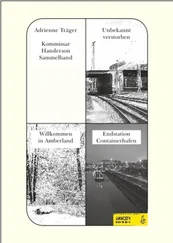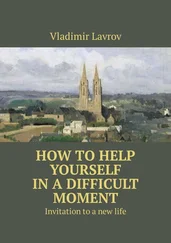6.
I arrived in Maple Hill in January, halfway through the school year, and spent my first New Jersey winter wandering around and marveling at my good fortune. We suffered ice storms nearly every week, bad enough to take out the city’s power, but cold was nothing new to me. When I woke up and saw my breath, I dressed practically, in layers, and topped myself off with the grass-green wool coat I’d bought at the local department store with the ten dollars offered to all combat orphans by the American committee that took on our care. They mistook the moth-eaten look of my old coat for war-torn: a bit of luck. Each day I tucked my hands into my clean new pockets to protect them from the wind and also to hide the holes in the fingertips of my gloves—I’d never owned anything brand new before, and I was grateful to the winter weather for giving me an opportunity to show off, however minimally. My lips in that freeze looked bitten, and my skin achieved a nearly fashionable pallor, though I would never quite lose the hardy peasant complexion that was my birthright. My roommate, Margaret, slept under an electric blanket; she kept it plugged in even during blackouts, and when I got up on those winter mornings all I could see was the tuft of her hair beneath her pile of supplementary quilts, and the electric wire snaking hopefully down to the floor.
Despite my coat stipend I was given nothing for shoes, and since the tread on my old boots was worn almost completely away I was forced to walk slowly along the slick roads to keep from falling. I didn’t mind. Everything was covered with a film of ice that looked, to me, like sugar glaze. On the bone-bare trees, on the holly bushes with their prickling leaves and poisonous red berries. On white picket-fence posts and holiday lights; on lost purple mittens and the occasional squirrel, fallen from its treetop nest as heavy as a paperweight. The cars lining the streets sported wipers shellacked to their windshields, and every mailbox was sealed tight, whether bearing secret gifts or only more cold air. (Sometimes, I admit, I imagined prying one open and seeing a living bird fly out; I’m not sure why this image appealed to me so much, but it was strong enough to push me once or twice into standing in front of a box and tugging at the metal lip, hoping for some give. Always, though, the approach of a car or some movement in a nearby window forced me to abridge my efforts.) There were no houses in Moscow, at least not like this, small and sweet and personal. There was beauty, of course: art nouveau and cracked gilding, windows that were stories tall. But nothing so pretty or pedestrian. Nothing, since I lost my parents, that felt so immediately like home.
Each day I made my way through the neighborhoods that surrounded the Donne School, sometimes taking deliberate steps, sometimes gliding along like a skater until I reached the strip of stores that constituted our downtown, where the sidewalks were salted dry. There was a bookshop I entered rarely but with great reverence, a market that didn’t open until ten A.M., a dress shop next door to a tailor, and, most important, a little café that seemed to have prophetic hours, as no matter when I slid out of bed, I was always their first customer of the day. I never bought more than a single coffee, but it was refilled as long as I wanted to stay, and occasionally the proprietor—an old maid named Marie who wore gypsy skirts but sensible earrings—would slip a biscotti onto my plate alongside the white ceramic coffee cup. There, I would labor through the reading that allowed me to scrape passing grades in my classes. It had been expected that I would enter school a bit behind, with the limited English skills and (sadly temporary) refugee sheen I imported from abroad, which earned me some pity in those early days. But more than the language, I found it difficult to mimic the bravado of my classmates as they went about their work, offering answers—in front of the teacher!—which were not only wrong but impertinent, while I crossed and recrossed my legs at the back of the room, trying to memorize my textbooks.
It wasn’t that I didn’t try, but it was all strange to me. The Donne School lecture halls were full of unfamiliar cheer, with paper murals and stacks of books you were welcome to pick up, flip through, argue with. The matching desks and chairs arranged throughout the rooms stayed somehow neat and refinished all year, despite the girls who put their feet up, leaking winter salt and ice onto the wood, and the girls who scraped at the varnish with their fingernails, peeling away long, almost weightless threads. Sometimes they picked out hairpins and used them to carve their initials, but even these small marks seemed to disappear within a few days or even hours, a handyman bustling in with a pocket full of sandpaper. Back home I would’ve considered these girls feral, scribbling their indecipherable notes and wearing stockings with the seams all twisted, full of runs. But here, the messier they were, the more abominably casual, the richer their families tended to be. And though I didn’t understand it, I liked it. I liked them, from afar. They had pink book bags and they threw away half-eaten chocolate bars, which I had to stop myself from picking out of the trash. One or two of them chewed on their hair, calling up the memory of deep, inerasable hungers that I knew none of them had ever felt. I liked knowing that they hadn’t. They flowed together through the halls, giggling and holding hands, studied in the library carrels with heads pressed together in dim lamplight, and I watched them, wanting to swim in that same easy water. We were often asked to give presentations or make speeches in class, and under this attention the other girls preened every bit as much as I recoiled. Because something unimaginable happened: when they finished, people applauded. Every day, every time. And I applauded too, as vigorously as anyone else.
Expressing a firm or independent opinion felt unnatural to me, and this made composition papers a struggle. I also didn’t care to write about my family history, to the consternation of teachers and counselors alike. “Wouldn’t it make you feel better to talk about what you’ve been through?” they asked me, and I always answered with a firm “No.” It’s interesting how time changes a person. I never would have relented to keeping a diary back then.
Between the bodies that eventually filed in and the radiator steam, Marie’s café was endemically overheated, and I have many fond memories of sitting at a round table by the fogged-up window, sipping from my bottomless coffee cup. I remember that the room always smelled of the rosemary Marie baked into her scones, though I never had the money to buy one, and that the bathroom had the familiar, bouillon scent of a home whose inhabitants eat a great deal of cabbage. I often wondered if Marie, too, was in exile from some former life, but her nasal American speech made it hard to imagine what that life might be. (A limitation of inventiveness that I have since overcome.) We sat in companionable silence: me turning pages and slurping with unmannered indifference, she ringing up change and wiping crumbs off of tabletops, occasionally humming a jaunty tune that, despite being stuck in my memory, I have never been able to identify.
I was at Marie’s when I made the discovery that turned school—or, at least, schoolwork—tolerable. The winter sun was halfway down, streetlights buzzing on outside, and I was exhausted by the effort of doing poorly, day after day. You have to remember, my studies were all I had at this point; everyone I knew or loved was back in Moscow, most now dead. As it was, I sometimes initiated chats with the Donne School gardeners just to feel connected to the earth again, and to get back a sliver of the confidence I used to feel among the sugar beet fields of Lipetsk. In the café, I leaned my head against the window so I could watch the hazy figures clip by on the sidewalk in their dark coats, heading home. Out of the corner of my eye, I noticed the faint outline of a heart drawn into the steam—some other child must’ve done it, on some other day. But when I pressed my finger to the glass and traced the line, a man walking by outside smiled. At me. My perceived whimsy. My perceived joy. And I realized: maybe I knew what to do, after all. There were plenty of opinions in the world, and any of them could be mine, if I only said so.
Читать дальше












